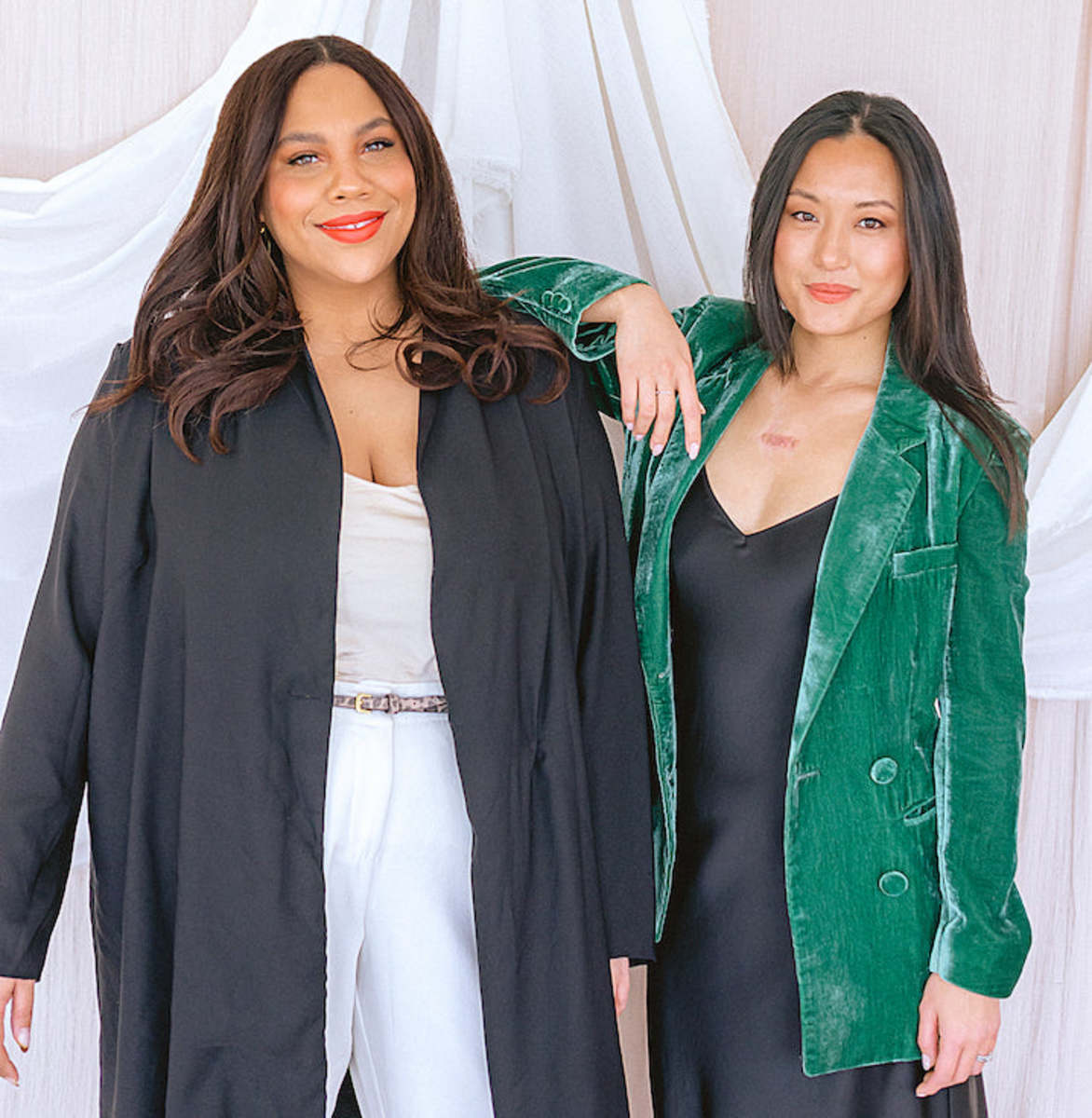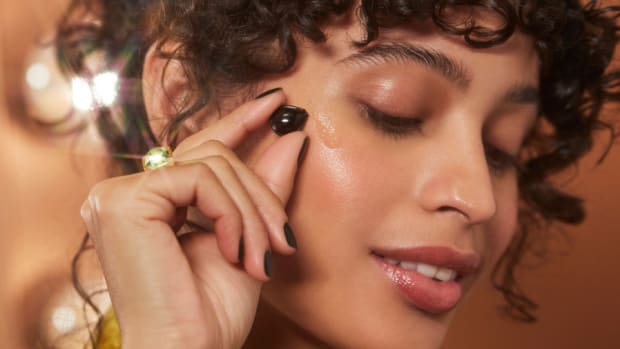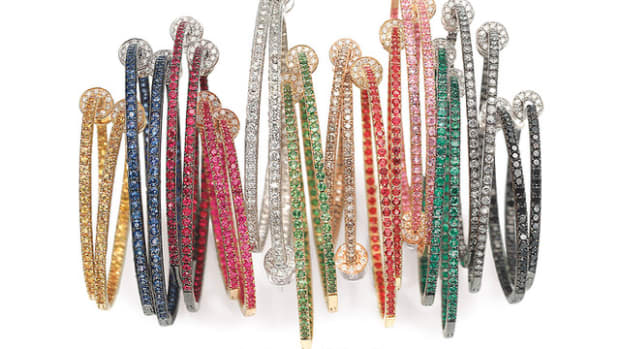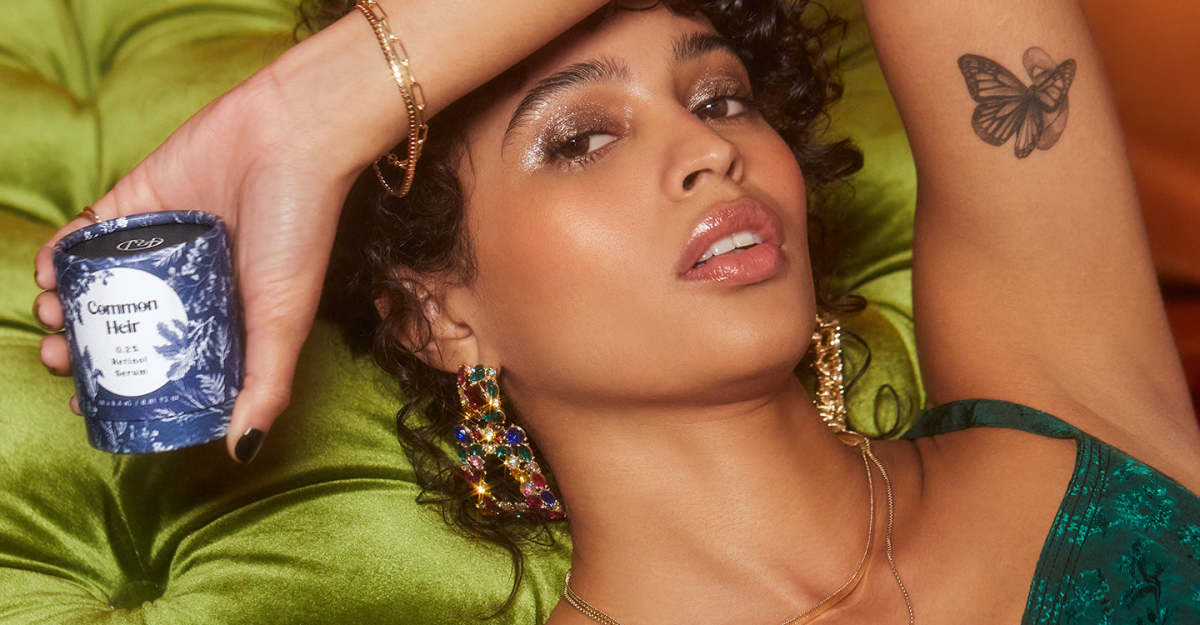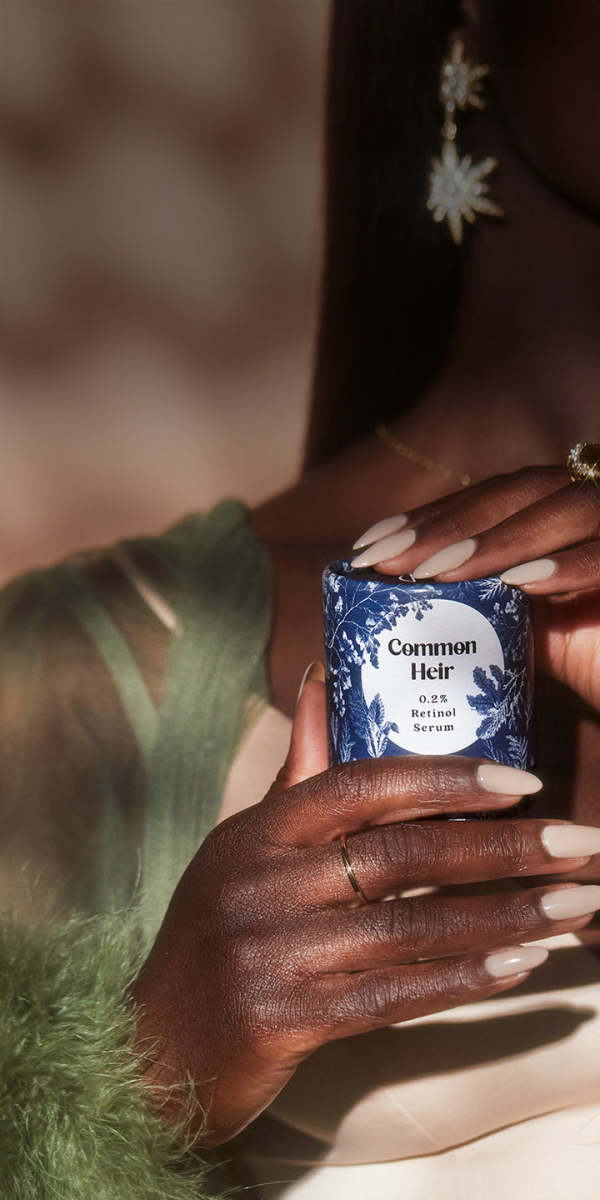Common Heir — a plastic-free skin-care brand that launched a little over a year ago — isn't interested in following beauty business as usual. In an industry where terms like 'sustainability' and
'inclusivity' are used more often as buzzwords or tokens rather than actionable efforts, the brand, founded by Angela Ubias and Cary Lin, wants to redefine what's expected of environmentally-friendly skin care.
Common Heir's attempt at reinventing sustainable skin care began with no shortage of potential roadblocks. The launch of its first product — an encapsulated vitamin C serum — was planned just as the pandemic started. Because of this, the majority of the founders' work, including some of their first meetings, was done remotely.
"Having to build everything together remotely was a huge challenge for us, and not part of the plan at all," Lin, who also serves as Common Heir's CEO, tells Fashionista. "I think the upside of working together remotely, as perfect strangers who hadn't met each other before, was the transparency and clarity we gained from each other."
"Communication was just paramount," Ubias, who is also the company's Chief Product Officer, adds. "We had to be our most authentic selves all the time and there was no room for misconstruing anything. It forced us to really get to know each other and have these conversations that would have felt uncomfortable had we had them in person."
The pair had conversations about sustainability, inclusivity and even the future of the company early on, and while Ubias was initially balancing Common Heir with another job, she eventually came to join company brand full-time. "In the pause of the pandemic that was forced on all of us, I was in a really fortunate position to be able to reflect on what it is that I want to leave behind," she says. She ultimately took the leap and left her job, believing in what Common Heir could build.
Both women have a personal approach to beauty that inspired them in founding the brand: Ubias spent a lifetime learning from a grandmother who viewed her Sunday mornings as a time for partaking in beauty rituals. Lin, who was introduced to the industry as an intern at a beauty company, became aware of the impact plastic packaging can have on the environment while walking along a California beach. Noticing a shore littered with plastic bottles, she dreamed of creating a company conscious of its environmental impact.
Both of Common Heir's products are serums that feature potent actives known for their volatility; they must be packaged in airless containers to maintain efficacy and prevent rapid degradation. Where most skin-care brands turn to airless plastic pumps, Common Heir chose to portion its formulas into minute, single-use pods made from a plastic-free, biodegradable vegan material that can be melted down in boiling water or simply thrown out (again, it's biodegradable!). The capsules come housed in a fully recyclable paper tube.
After releasing its debut product, the 10% Vitamin C Serum, the brand turned its attention to creating a retinoid, which it launched in February. Consistently requested by customers, Common Heir's Retinol Serum uses a low percentage of the prized anti-aging ingredient.
The company's two debut products hinge upon fairly common staples of the skin-care world, vitamin C and retinol. What sets Common Heir's product development approach apart from other skin brands, though, is its goal of anchoring said formulas in the idea of community and accessibility. "When we decided that, yes, we're going to do retinol, we decided that we wanted to go with the same priority of making this an approachable formula," Ubias explains.
Recommended Articles
Initially allowing friends and family to test the product, the pair quickly realized they were making a retinol specifically centered around serving melanated skin. "Once we had that aha moment, we really leaned into it and thought of how we could take extra steps to ensure that we're doing this in the most thoughtful way possible," Ubias says.
They focused their attention on clinical trials, ensuring that testing occurred on multiple skin types and tones. "We had this moment of realizing that, wait, clinical trials are kind of broken, because they're not designed to be inclusive in a really holistic way, and that's what sets this retinol apart so much," Ubias says. "When you formulate something that is truly inclusive, and you create a product that actually works for all, that shouldn't exclude certain skin types. You should be catching everybody."
Lin noted of the testing process that, "In clinical trials, by default, you don't get a lot of representation of skin types; it's whoever signs up and fills the criteria, so you will get a lot of people that look the same. We decided that we really wanted to hit everyone."
The two hope that by challenging even the standards of clinical testing that perhaps future brands may take note. "Inclusive product development and sustainable product development ought to be the default of luxury beauty, if not beauty entirely," Lin says.
While Common Heir remains tight-lipped on what's coming next from the brand, Ubias admits she dreams of one day taking over your entire vanity. Until then, she, along with Lin, want to continue invoking change across the industry.
"We want to prove that it should be possible to do the right thing if there's enough creativity and intention behind it," says Lin. "We both love this industry and we just want to see it go in a positive direction…I think it would be really great to inspire other people to create the change they want to see in the world."
"It's about true representation," adds Ubias. "It's about getting to see someone that looks like you, that is from a similar background. I certainly came into this industry in a very non-traditional way. I don't have a chemistry degree, I don't have any of those things. So that aspect of representation is what I'm holding the closest to my heart and that is the type of legacy I want to leave behind. You can do it, if you really want to."
Please note: Occasionally, we use affiliate links on our site. This in no way affects our editorial decision-making.

